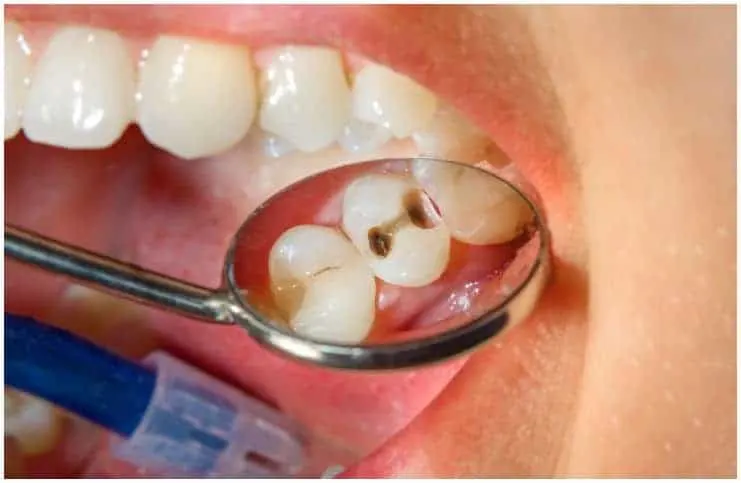Swerve vs Truvia – Comparison Of Low-Carb Sweeteners:
Introduction
With the popularity of keto and low-carb diets, more people are looking into sugar replacements for their kitchen.
Here is a comparison between Swerve and Truvia, two low-carb sweeteners:
Swerve
It is a great tasting, natural sweetener that measures cup-for-cup just like table sugar, but without the digestive discomfort or bitter aftertaste of other sweeteners.
This sweetener is produced from a combination of non-GMO ingredients that are derived from vegetables and fruits. In addition, it contains no artificial preservatives, ingredients, or flavors.
It comes in confectioners and granular sugar forms, and in individual packets. The sweetener works well in most baked goods.
There are three ingredients listed in this sweetener, such as:
Erythritol – it is the main ingredient in the sweetener, and it is a sugar alcohol that is made by using microorganisms to break down vegetables and fruits, that yields white crystals after a fermentation process.
In comparison to sugar, erythritol is said to be 60 to 70 percent as sweet and has a similar taste profile.
It is absorbed in the small intestine and then eliminated by the human body, therefore, it is never metabolized and can’t contribute calories to the nutrition.
Oligosaccharides – these are a type of prebiotic fiber that naturally occurs in various plants. Most oligosaccharides on proteins are divided into N-glycans and O-glycans.
They can be made up of the simple sugars galactose or fructose, however, it is unknown which of these types this sweetener contains.
Oligosaccharides provide additional sweetness for your taste buds and a healthy food source for gut bacteria.
Natural Flavors – according to the manufacturer, the sweetener is produced using “a little natural flavor from citrus”.
Truvia
This sweetener was developed jointly by Cargill and Coca-Cola Company. It is manufactured from a blend of three ingredients:
Erythritol – it is a type of sugar alcohol that adds both bulk and sweetness to the sugar substitute.
Rebaudioside A – only about 0,5% of this product is Rebaudioside A – a sweet compound that is isolated from the stevia plant, a flowering plant in the Aster family that is native to Paraguay. Rebaudioside A is actually 400 times sweeter than sugar.
Natural Flavors – it is unclear what this means since the manufacturer has patented Truvia’s specific blend.
Benefits
Swerve
Weight Loss
 Erythritol, the main ingredient in Swerve, is a zero-calorie option that can aid in weight loss efforts and help improve metabolic processes.
Erythritol, the main ingredient in Swerve, is a zero-calorie option that can aid in weight loss efforts and help improve metabolic processes.
This is good news since the prevalence of obesity in the United States is around 39 percent of adults and it affects over 94 million people.
Worldwide, over 2.2 billion people are either obese or overweight.
Good For Diabetics
Diabetes mellitus refers to a group of diseases that affect how the human body uses blood sugar.
In 2015, approximately 2.2 million deaths were attributable to high blood sugar. Another 1.6 million deaths were directly caused by diabetes.
A daily dose of erythritol for 14 days did not affect blood glucose (sugar) levels of pre-diabetic study participants, according to a 2015 study looking at pre-diabetics, that was done at the Division of Endocrinology and Metabolism, Korea.
Other studies have concluded that oligosaccharides don’t cause an increase in insulin or blood glucose levels.
Truvia
Blood Sugar Control
Using this product instead of table sugar can help stabilize your blood glucose levels since erythritol and stevia are less likely than sugar to cause spikes in the blood glucose levels.
No Tooth Decay
Tooth decay, also known as dental caries or cavities, is the destruction of the tooth enamel – the hard, outer layer of the teeth.
Oral bacteria ferments the leftover food in the mouth. This produces acids that wear down the teeth. However, bacteria have no use for erythritol and stevia.
This will reduce your risk for tooth decay and allows you to indulge your sweet tooth.
Very Low In Calories
This sweetener contains practically zero calories per serving.
This makes it a good option for people looking to lose weight.
Side Effects
Swerve
All of the ingredients used in this product are on the list of foods the U.S. FDA considers to be Generally Recognized as Safe.
But, individuals with sensitive stomachs may experience gastrointestinal upset due to their lack of digestibility of sugar alcohols.
Moreover, if you are pregnant, you should use this sweetener in moderate amounts.
Truvia
It is a natural sweetener, and the US Food and Drug Administration classifies its ingredients as Generally Recognized as Safe. But, eating too much of this sweetener may lead to feeling over-full or experiencing nausea.
ALSO READ: Health Benefits of CQ10
Swerve vs Truvia – Which Is Better?
Swerve is an all-natural zero-calorie sweetener that measures out cup for cup like sugar but without the bitter aftertaste or digestive discomfort of other natural or artificial sweeteners.
Its capacity to caramelize makes it an excellent sweet substitute in numerous low-carb recipes.
Truvia is a sugar substitute that is manufactured by the Cargill Company. It is a zero-calorie natural sweetener comprised of stevia leaf extract, erythritol, and natural flavors.
Erythritol (the main ingredient) is excreted through urine without undergoing any changes nor contributing any calories since it has a chemical attribute that makes the body unable to break it down for digestion.
In conclusion, both products are advertised as natural sweeteners, however, they are highly refined sweetening agents produced mainly from erythritol, a type of sugar alcohol.
Both are a better option than artificial sweeteners, like – Equal, Sweet’N Low, and Splenda.
ALSO READ: Acacia Gum (Gum Arabic or E414) – Side Effects and Benefits
Sources https://www.ncbi.nlm.nih.gov/pmc/articles/PMC4899993/ https://www.ncbi.nlm.nih.gov/pmc/articles/PMC3198517/ https://www.nhs.uk/live-well/eat-well/are-sweeteners-safe/ https://www.sciencedaily.com/releases/2014/06/140604203038.htm

